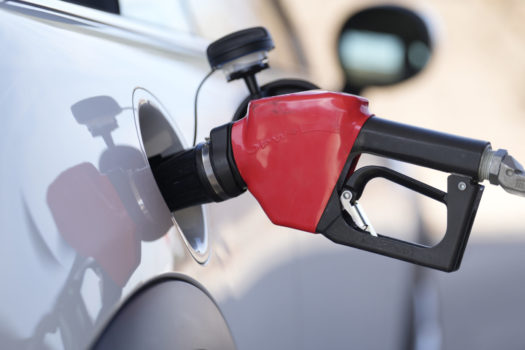(Kenneth Schrupp, The Center Square) Despite a rising tide of Democratic opposition and the majority of California counties voting for president-elect Donald Trump, California regulators voted to pass an estimated $105 billion in EV charging credits and $8 billion of hydrogen credits largely paid for by fees on gasoline and diesel fuel.
The standards also could result in significant inflation for California-grown food and for goods that come in through California’s land and sea ports due to possible port slowdowns, and higher costs for the diesel that carries goods by trucks and trains from California to the rest of the country. Because California supplies fuel for Arizona and Nevada, the two neighboring states could face fuel cost spikes and shortages, as their governors have warned.
The California Air Resources Board, all but two of whose voting members are appointed by the governor, estimated the new carbon standards would result in pass-through costs of 47 cents per gallon of gasoline and 59 cents per gallon of diesel in 2025.
“The amendments will both accelerate deployment of low carbon fuel options and establish long term policy and market signals to support the large-scale energy transition,” said CARB Chair Liane Randolph at the all-day hearing.
CARB’s Low Carbon Fuel Standard rewards or punishes fuel producers relative to a rising “clean” standard. The adopted proposal reduces the carbon intensity of fuel by 30% compared to the 2010 baseline by 2030, instead of the current 20%, thereby necessitating much steeper emissions cuts.
This means that refiners will need to purchase more credits when making California gasoline or diesel — costs CARB says will be passed on to consumers. These credits must be purchased from producers of “clean” energy who earn credits, such as the owners of EV charging networks.
“The LCFS provides the economic incentives for the private sector to produce and lower the cost of cleaner fuels like electricity, hydrogen and biofuels, and to build charging and hydrogen fueling infrastructure,” noted CARB staff at the meeting.
An earlier investigation from The Center Square found the new LCFS was pushed by EV makers who own their charging infrastructure. The EV makers require buyers of their chargers — who pay for electricity — to forever sign away their rights to generated credits to the companies, which often install the chargers for “free” via more subsidies from taxpayers or utility ratepayers.
EV buyers are significantly wealthier and more likely to be homeowners than the typical Californian, and lower income Californians tend to live farther from work and rely on older gasoline cars for transportation. This means the LCFS provides money for wealthy EV buyers and makers of EVs that cost an average of nearly $800 per month to finance through costs passed on to poorer California drivers.
“I represent a working class rural district that is largely dependent on agricultural jobs,” said Assemblywoman Esmeralda Soria, D-Fresno, in a letter imploring CARB to not adopt the new standards, which would have an outsize impact on the fuel-intensive agriculture industry. “It is these working families that can least afford even a modest increase in fuel prices.”
CARB estimated the new standards would cost refineries more than $1 billion per year, which could lead Chevron and Valero — who have warned they could leave the state — to shut down their refineries, which would necessitate replacement fuel with Middle Eastern oil refined in Asia and shipped to California carried on nearly one thousand tankers per year, release the annual emissions equivalent of 1.3 million cars.
With transportation accounting for 7% of a typical good’s cost, higher prices for diesel used by trucks and trains to transport goods from California’s sea and land ports — the state also receives goods from Mexico — combined with a slowdown in the state’s ports could lead to inflation and delays for imported goods.
CARB staff also noted how LCFS would impact ports and shipping food through California.
“The LCFS is also providing significant support to electrified shore power as well as zero emission forklifts, cargo handling equipment and transport refrigeration units,” said CARB staff.
California’s ports are receiving $1 billion for port electrification that explicitly excluded automation, which legislators warned could lead ports to slow down as reliable equipment is replaced with equipment that must be recharged. Should replacement fuel imports be required at scale, it’s unclear how Californa’s ports would be able to accommodate the new surge in tankers.
The new LCFS also includes an automatic tightening of standards that could be triggered as soon as 2028 if credit prices drop too low, as has occurred in recent years as businesses responded to the inventive system by rapidly creating credits and achieving the target level of emissions three years ahead of schedule. If credits get too cheap from too much clean transportation energy being produced, the costly investments to yield credits could become liabilities; the “Automatic Acceleration Mechanism” is a protection against that.
CARB pushed back against calls for it to provide new estimates on how much the new standards would cost Californians at the pump, while also distancing itself from its earlier cost estimates.
“Any estimates of costs incurred by the LCFS regulatory proposal are inherently uncertain because they involve conducting estimates and speculative productions,” said CARB staff.
13,000 Californians joined Republicans in a petition to ask CARB to delay its LCFS vote.
“Today’s decision by CARB will not only make it more expensive for families, but also disproportionately affect residents in rural communities in my district who must travel long distances for groceries, healthcare, et cetera,” said State Sen. Brian Dahle, R-Bieber, in a statement. “Californians shouldn’t have to forfeit taking their family out to dinner in order to afford putting gas in the car just to get to work.”

